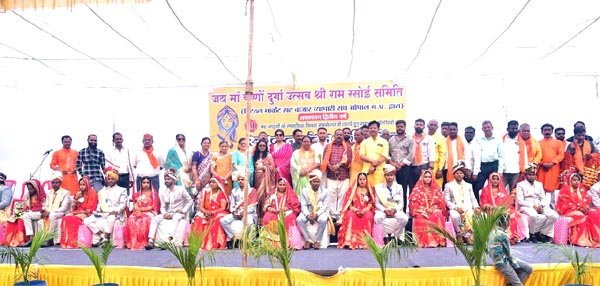New Delhi, Apr 8 (UNI) The Supreme Court on Tuesday upheld a High Court order that quashed a criminal case registered against Brij Bhushan, former Managing Director of the Jammu and Kashmir Cooperative Housing Corporation (JKCHC), in an alleged illegal land allotment matter.
The top court found that the only allegation made against Bhushan was a vague claim of “connivance” with state officials, with no concrete evidence or suggestion of personal gain.
A bench, comprising Justices Sudhanshu Dhulia and K Vinod Chandran, was hearing a special leave petition (SLP) challenging the quashing of the FIR filed in 2021 under Section 5(2) of the Jammu and Kashmir Prevention of Corruption Act, 2006, read with Section 120-B of the Indian Penal Code, 1860.
“In any event, we do not see any allegation against the respondent herein under the provisions on which the FIR has been registered but for a bland allegation of connivance with the officers of the State. There is also no personal benefit even alleged to have accrued to the party respondent herein,” the Bench observed.
The appellant was represented by Advocate-on-Record Pashupathi Nath Razdan, while Advocate Nonu Khera appeared for the respondent.
The JKCHC had acquired land in 1989 for Rs 31,500 and developed several residential blocks, which were allotted to members on a “first come, first served” basis.
In 2021, an FIR (first information report) was registered, alleging that the landowners (through their power of attorney holders), in collusion with a Tehsildar and Brij Bhushan, managed to obtain a fard Intikhab (land ownership document), which facilitated the transfer of the land to JKCHC.
It was further alleged that this transaction conferred undue benefits to the corporation and its members.
Brij Bhushan, however, moved a petition under Section 482 of the CrPC, seeking quashing of the FIR, which was allowed by the High Court.
The Apex Court noted that the High Court had considered Section 29 of the J&K Agrarian Reforms Act, which provides protection for actions taken in good faith.
However, the Bench clarified, “We will not go into whether criminal proceedings would lie under the Prevention of Corruption Act and the Indian Penal Code as against the officers, since they are not before us.”
Importantly, the Court emphasized that indemnity under Section 29 would only apply if the act was genuinely done in good faith, and that question must be independently determined if those officers are prosecuted.
The Bench also observed that the land was acquired by the Cooperative Society after due verification of title from the District Collector, and a residential colony had already been established on the said land.
Furthermore, the State had not initiated proceedings under Section 28-A to reclaim the land.
In conclusion, finding no substantial allegation or evidence of corruption or personal benefit against Brij Bhushan, the Supreme Court dismissed the Special Leave Petition, affirming the quashing of the FIR.











